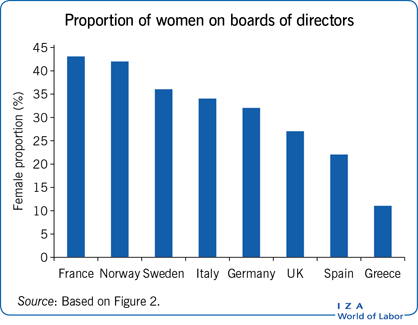Elevator pitch
Arguments for increasing gender diversity on boards of directors by gender quotas range from ensuring equal opportunity to improving firm performance. The introduction of gender quotas in a number of countries has increased female representation on boards. Current research does not justify gender quotas on grounds of economic efficiency. In many countries the number of women in top executive positions is limited, and it is not clear from the evidence that quotas lead to a larger pool of female top executives, who are the main pipeline for boards of directors. Thus, other supplementary policies may be necessary if politicians want to increase the number of women in senior management positions.

Key findings
Pros
Quotas increase the number of women on boards of directors.
The decision-making process improves with greater gender diversity on boards.
Having female board members seems to improve board attendance.
Having female top executives may have positive effects on the career development of women at lower levels of an organization.
Boards with more female members tend to be tougher monitors of company executives.
Cons
Boards with diverse members or members who differ from the company’s senior management may experience communication problems internally and with management.
Quotas imply that less experienced women will join boards because the supply of qualified women in senior executive positions is thin.
Quotas seem to have little positive effect on increasing the pool of women with senior executive experience.
Despite some positive outcomes, the short-term performance effects of female board members are insignificant or negative, and it is too soon to establish the long-term effects.